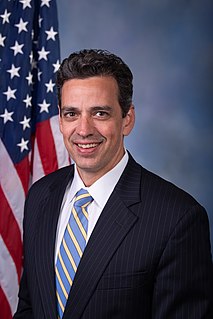A Quote by Khaled Hosseini
[Barack Obama] is sending more troops [to Afghanistan], but they have also realized that we are not going to win that war through guns and tanks. We have to engage the neighbors, and it is good that there is a non-military strategy in addition to a military strategy. It is, at least, encouraging. Whether it will work or not, the jury is still put.
Related Quotes
Inside the White House there were always extreme amounts of doubt about whether they should be escalating in Afghanistan. In fact, most of the president's advisers said, "This is probably not going to work." A lot of people in the military said, "This is probably not going to work." If the thumbnail version of the Iraq war was that George W.Bush lied about mass destruction weapons, the thumbnail version of Barack Obama's war in Afghanistan is that the generals pushed him into a war he didn't want to fight.
If our commanders on the ground say we need more troops, I will send them. But our commanders tell me they have the number of troops they need to do their job. Sending more Americans would undermine our strategy of encouraging Iraqis to take the lead in this fight. And sending more Americans would suggest that we intend to stay forever, when we are, in fact, working for the day when Iraq can defend itself and we can leave.
The question's whether or not there's an American interest in the Civil War [in Syria]. The question is whether or not a military strike on [Bashar] Assad will cause him to be encouraged to use more weapons or discouraged. It's easy enough to say - and the president [Barack Obama] says though this will teach him a lesson - but his military strike is intended not to target him individually, not to bring about regime change.
Counting the numbers of troops is not going to define our success here.There is no military success, ultimately, to Afghanistan. The Afghans themselves are going to define what happens here. And we have to convince ourselves that we have a strategy in place that empowers them to do that and that is realistic in what our expectations are from them and on what schedule.
I intend to vote against authorizing the president to use military force in Syria. The Obama Administration has not provided a clear or convincing strategy for inserting our military into the conflict. I am also deeply concerned about the extent to which al-Qaeda-affiliated terrorists are involved in the rebellion.
Because President Obama had an overall strategy, military and civilian leaders under his command could make reactive decisions that advanced the president's goals. In the military, we call that commander's intent: When there's a decision to be made and you don't have exact guidance at that moment, you at least know overall what your boss wants.
The military sensed weakness, exploited it and played Barack Obama. Obama's foreign policy has been consistently hawkish despite this reluctant warrior schtick that he pulls. But at the end of the day a reluctant warrior is still a warrior. Look at the drone strikes, the tripling of the war in Afghanistan, and now Libya. I'm convinced that had Obama been in the Senate in 2003 he would have voted for the Iraq war. He's clearly easily convinced by his advisers and the Pentagon.
Yes and no. Because America has only about 1 percent of the population serving in the military, it is hard for many civilians to understand the sacrifices military families make. However, my experience is that after the Vietnam War, the public learned that they should support the military whether or not they support the war. You've seen that outpouring of support for the veterans of both Iraq and Afghanistan.
We do not want to keep our troops in Afghanistan. We see no military - we seek no military bases there. It is agonizing for America to lose our young men and women. It is costly and politically difficult to continue this conflict. We would gladly bring every single one of our troops home if we could be confident that there were not violent extremists in Afghanistan and now Pakistan determined to kill as many Americans as they possibly can.
There is no military solution to the war in Iraq. Our troops can help suppress the violence, but they cannot solve its root causes. And all the troops in the world won't be able to force Shia, Sunni, and Kurd to sit down at a table, resolve their differences, and forge a lasting peace. In fact, adding more troops will only push this political settlement further and further into the future, as it tells the Iraqis that no matter how much of a mess they make, the American military will always be there to clean it up.




































